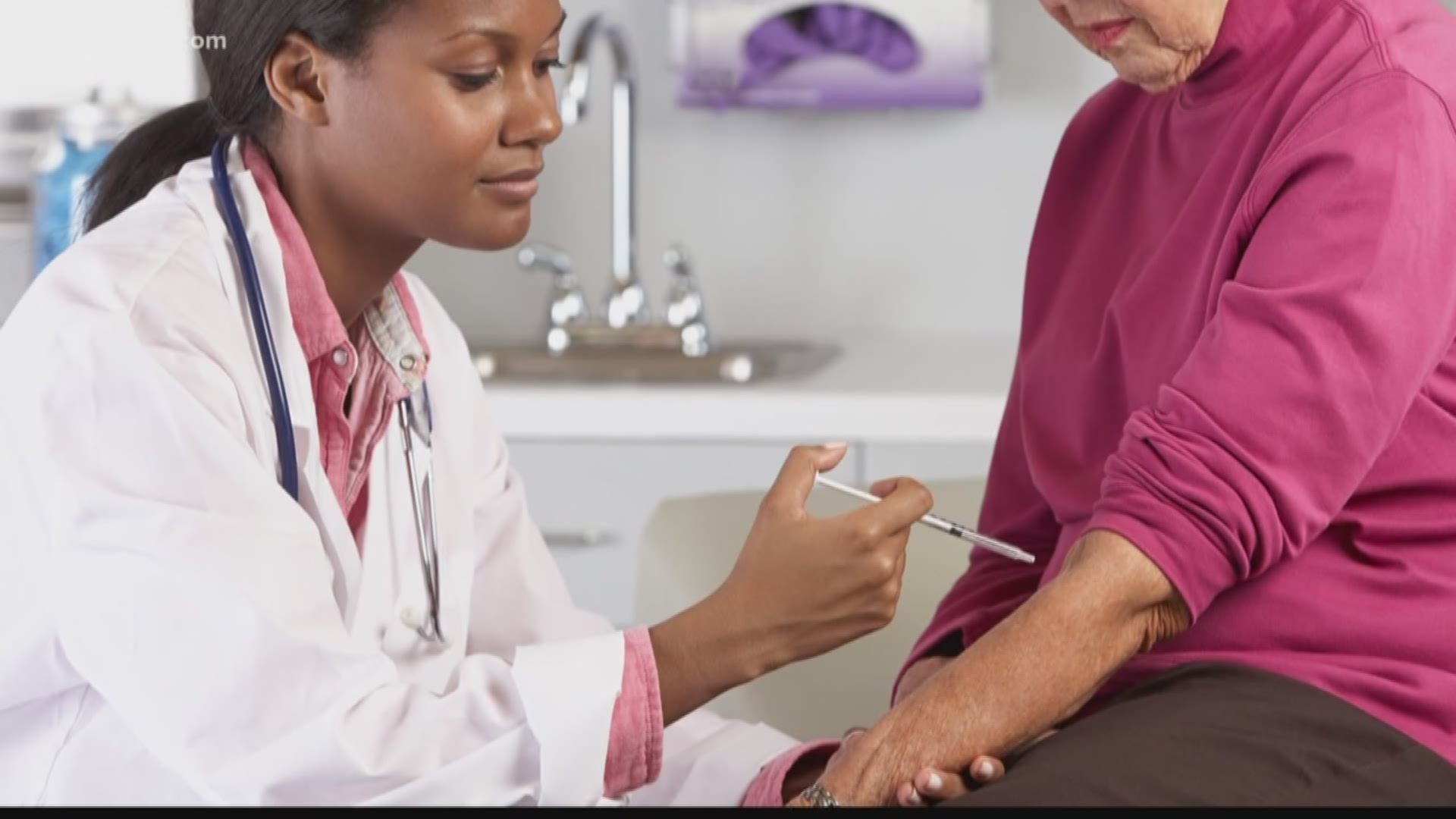Virginia's Department of Public Health is reporting flu activity is currently “widespread."
'Widespread' is the highest level of flu activity and is the first time it has reached this level during the 2018-2019 flu season.
The Health Department determines the flu is 'widespread' when lab activity with shows high levels of Influenza-like illnesses or if there is more than one outbreak in three or more regions.
The CDC recommends that individuals to get the flu vaccine if they haven’t already. They urge people to also cover their mouth when they cough and avoid touching eyes, nose and mouth, as well as washing hands with soap and water.
The CDC Advisory Committee on Immunization Practices recommends flu vaccine for all individuals six months of age and older. People who are strongly encouraged to receive the flu vaccine because they may be at higher risk for complications or negative consequences include:
- Children age six months through 59 months;
- Women who are or will be pregnant during the influenza season; • Persons 50 years of age or older;
- Persons with extreme obesity (Body Mass Index of 40 or greater);
- Persons aged six months and older with chronic health problems;
- Residents of nursing homes and other long-term care facilities;
- Household contacts (including children) and caregivers of children aged ≤59 months (i.e., aged <five years, particularly contacts of children aged <six months) and adults aged ≥50 years;
- Household contacts and caregivers or people who live with a person at high-risk for complications from the flu; and
- Health care workers, including physicians, nurses, and other workers in inpatient and outpatient-care settings, medical emergency-response workers (e.g., paramedics and emergency medical technicians), employees of nursing home and long-term care facilities who have contact with patients or residents, and students in these professions who will have contact with patients.

